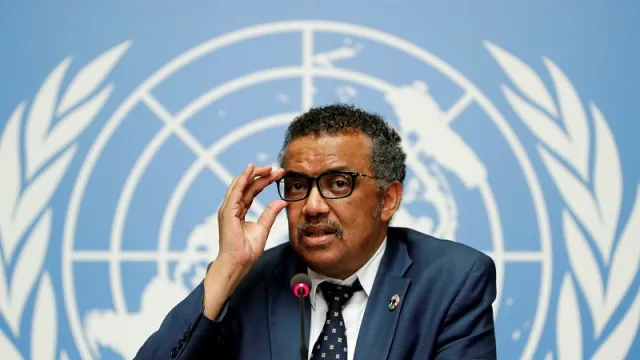Big win in war on malaria as vaccine gets WHO nod for use

Big win in war on malaria as vaccine gets WHO nod for use
The fight against malaria, a disease that kills tens of thousands of people annually, has received a major boost after the World Health Organisation said RTS,S vaccine can be given to children in Africa.
RTS,S vaccine, which is sold as “Mosquirix”, is a drug developed by British firm GlaxoSmithKline.
Since 2019, roughly 2.3 million doses of Mosquirix have been administered to infants in Ghana, Kenya, and Malawi in a large-scale trial programme coordinated by the WHO following a decade of clinical tests in seven African countries.
“This long-awaited malaria vaccine is a breakthrough for science. This is a vaccine developed in Africa by African scientists and we’re very proud,” said WHO Director-General, Dr Tedros Ghebreyesus.
“Using this vaccine in addition to existing tools to prevent malaria could save tens of thousands of young lives each year,” he added, referring to anti-malaria measures such as bed nets and spraying.
Malaria still remains a deadly disease, more than even the novel COVID-19 in Africa, with WHO data showing it killed about 386,000 people in Africa in 2019, compared with 212,000 confirmed deaths from COVID-19 in the past 18 months.
The WHO says 94 per cent of malaria cases and deaths occur in Africa, a continent of 1.3 billion people.
The preventable disease is caused by parasites transmitted to people by the bites of infected mosquitoes and the symptoms include fever, vomiting, and fatigue.
The vaccine’s effectiveness at preventing severe cases of malaria in children is only about 30 per cent, but it is the only approved vaccine.
Read also: Over 92 million Covid-19 shots administered in Africa
The European Union’s drugs regulator approved it in 2015, saying its benefits outweighed the risks.
“This is how we fight malaria, layering imperfect tools on top of each other,” said Ashley Birkett, who leads global malaria vaccine work at Path, a non-profit global health organization that funded the development of the vaccine with GSK and the three-country pilot.
Dr Bernhards Ogutu, Kenya’s Chief researcher at KEMRI says the vaccine is a big step in Africa’s journey of eradicating malaria, a disease that killed about one million people, mostly children under five years between 2018 and 2019.
“There was need to do a pilot to make sure everything was right and this has come to light this day and I think this has a lot of meaning to the African child.”
According to Dr Ogutu, RTS,S vaccine marks Africa’s journey towards elimination of malaria when combined with other measures.
Experts said the challenge now will be mobilizing financing for the production and distribution of the vaccine to some of the world’s poorest countries.
GSK has to date committed to producing 15 million doses of Mosquirix annually, in addition to the 10 million doses donated to the WHO pilot programs, up to 2028 at a cost of production plus no more than 5 per cent margin.
A global market study led by the WHO this year projected demand for a malaria vaccine would be 50 to 110 million doses per year by 2030 if it is deployed in areas with moderate to high transmission of the disease.



